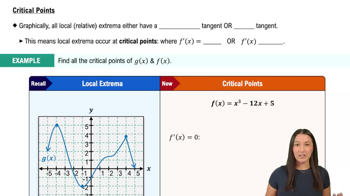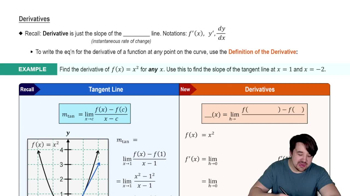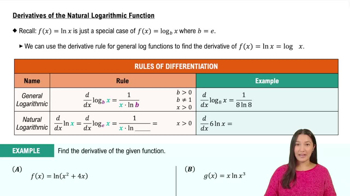Locating critical points Find the critical points of the following functions. Assume a is a nonzero constant.
ƒ(x) = 3x³ + 3x² / 2 - 2x
 Verified step by step guidance
Verified step by step guidance Verified video answer for a similar problem:
Verified video answer for a similar problem:



 5:58m
5:58mMaster Finding Extrema Graphically with a bite sized video explanation from Patrick
Start learning